Commemorating Atal Bihari Vajpayee's 99th Birth Anniversary: My Personal Reminiscences with the Great Man
My thoughts on the two very brief personal interactions I has with the Great Son of India.
Remembering a Visionary on His Centennial
Amidst the jingling of Christmas bells, I was reminded that today also marks the birthday of a great son of India, Atal Bihari Vajpayee. Indeed, it's his centennial celebration if we count his birth year as the first, making this his 99th birth anniversary, since he was born on 25th December, 1924.
Early Admiration: Witnessing a Leader's Historic Moment
As a young college student, I vividly recall the newspaper headlines heralding the moment Atal Bihari Vajpayee, then the External Affairs Minister in Prime Minister Morarji Desai's cabinet, addressed the UN General Assembly in Hindi, becoming the first Indian to do so. This moment left a lasting impression on me. Even after graduating in engineering in 1983 and formally joining the IAS on 21st August 1984, it would be another 12 years before I had the opportunity to meet or personally interact with him.
The Fateful Evening: The Prelude to a Memorable Encounter
The long-awaited opportunity came in May 1996, following the general elections that resulted in a hung Lok Sabha. As the Deputy Commissioner of Amritsar, I had played a pivotal role in conducting the elections in the Amritsar and Tarn Taran parliamentary constituencies, bringing a collective sigh of relief to all involved. Having spent over four years in this sensitive border district, I was eagerly anticipating my year-long training at the University of Manchester. On the evening of 16th May 1996, I found myself in Chandigarh, attending a Red Cross function organised by the Governor of Punjab at Raj Bhavan, with plans to stay overnight before returning to Amritsar the following day.
An Unexpected VVIP Visit: Scrambling to Prepare
In the early evening, an urgent message came through the police communication network: Prime Minister Vajpayee would be landing in Amritsar the following day, 17th May 1996, to pay his respects at the Golden Temple. Without a moment's delay, we commenced our journey back, reaching Amritsar late that evening. The Prime Minister's visit was scheduled for early forenoon, and the advance security team from the SPG had already arrived, diligently coordinating with local authorities to ensure a seamless visit not only to the Golden Temple but also to Jallianwala Bagh and the revered Durgiana Mandir. Despite the high anxiety, a sense of relief prevailed, knowing that typically, preparations for a Prime Minister's visit commence nearly a fortnight in advance, placing the local district administration under immense pressure to augment all necessary resources.
A Moment of Privilege: Greeting the Prime Minister
Mr. Atal Bihari Vajpayee, as Prime Minister, arrived at Rajasansi Airport, Amritsar, and we were there to welcome him, alongside the incumbent Punjab Chief Minister, Harcharan Singh Brar. Being a District Magistrate comes with certain privileges, one of which is the opportunity to greet the visiting VVIP, regardless of one's position in the protocol hierarchy. As 'Namaskar' was the preferred salutation, I offered the same, introducing myself as the 'Ziladheesh.' He responded with a smile that twinkled in his eye, a moment of silent acknowledgment that spoke volumes.
The Pilgrimage to the Golden Temple
The visit to Darbar Sahib was meticulously planned, adhering to a well-established ‘maryada’ and protocol that unfolded flawlessly, akin to a finely tuned clockwork. The Prime Minister undertook the complete 'parikrama,' a sacred walk around the sanctum, covering approximately 1.5 kilometers of the holy periphery. With deep reverence, he paid obeisance at the sanctum sanctorum, offering 'prasad' in a humble gesture of devotion. The SGPC office bearers honored him with 'siropas,' a mark of respect and blessing. Amidst the serene ambience, he sat, immersed in the divine strains of 'kirtan,' absorbing the spiritual melody that resonated through the sacred halls. His was particularly curious about the day's 'Hukamnama,' he perused it intently, once outside the sanctum sanctorum — a divine message asserting that with Waheguru's support, no mission is impossible. As he exited the holy shrine, he acknowledged the greetings of the gathered devotees, effortless ascending the staircase the ‘Ghanta Ghar’ exit, his presence marking an indelible moment of spiritual communion and national unity.
Homage at the Jallianwala Bagh
The entourage's next stop was Jallianwala Bagh, a mere stone's throw from the Golden Temple. Given the narrow entrance, the journey into the heart of this poignant memorial required a 300-yard walk. During this solemn procession, Mr. Vajpayee inquired about the specifics of the massacre, showing particular interest in the number of casualties, their gender, and religious backgrounds. The Secretary of the Trust, despite his position, couldn't provide the details sought. Having conducted multiple tours, I was well-versed with these tragic statistics and shared them in fluent Hindi. It was evident from his thoughtful demeanor that learning about the evenly distributed suffering among Hindus, Sikhs, and Muslims due to General Dyer's bullets deeply moved him.
Durgiana Mandir and an Impromptu Media Interaction
After a brief visit to the Durgiana Mandir, dedicated to Goddess Durga, the Prime Minister's cavalcade made its way back to the airport. The visit proceeded smoothly, without a single hitch. Despite no formal press briefing being scheduled, the local media from AIR and DD Jalandhar were insistent on a statement from him on the tarmac before his departure. Despite the SPG's clear reservations, and after ensuring all press personnel and their equipment were thoroughly vetted, I approached Mr. Vajpayee directly with the request. To our collective relief, he graciously acquiesced.
The media's foremost question was poignant: "Why Amritsar, and not any other place in India?" they asked, emphasizing the city's significance even before the Prime Minister had secured the vote of confidence in the Lok Sabha.
A Memorable Departure: Lasting Words and Gestures
His response was succinct and profound: "Where else in the country can you receive the divine blessings of Waheguru, Durga Mata, and the countless 'shaheeds' of the freedom struggle all in one place?" With that, he declined any further questions. As he prepared to board, various local leaders eagerly vied for a final handshake.
Amidst the excited and slightly chaotic crowd, I was inadvertently pushed back, content not to vie for another personal moment with Mr. Vajpayee. However, to everyone's surprise, he inquired, “ज़िलाधीश मोहदिये कहाँ हैं?" (Where is the District Magistrate?) Upon hearing this, I moved forward. He offered a warm handshake, commended the arrangements, and, in a gesture that left an indelible mark, gave me an encouraging pat on the back before boarding.
Reflective Journey: Contemplating Leadership and Legacy
As I drove back to Amritsar, having seen him off, a reflective thought crossed my mind: this is the type of dynamic leadership India truly deserves. The subsequent events are etched in the annals of history. He lost the vote of confidence in the Lok Sabha on 28th May 1996, promptly resigning and submitting his resignation to President Shankar Dayal Sharma. Mr. H.D. Deve Gowda succeeded him on 1st June.
His tenure, lasting effectively 13 days, was just a prelude to his later leadership. From 9th March 1998 to 10th October 1999, he served for 13 months, after which the NDA, led by the BJP, secured a decisive victory. This victory ushered him into his third term as Prime Minister, lasting from 10th October 1999 until 2nd May 2004, when the UPA gained an unexpected victory in the General Elections. This period marked a significant era in Indian politics, characterized by Vajpayee's unique leadership style and vision.
The Delhi-Lahore Bus Inauguration: A Symbol of Hope
At Raja Sansi International Airport, Amritsar, on the 19th of February 1999, I witnessed a significant moment in history: the inaugural trip of the Delhi-Lahore Bus. As the Director of State Transport, Punjab, tasked with overseeing the Punjab Roadways, I had returned from Manchester with my MA in Economics, nearly two years ago.
It was a clear and crisp late February afternoon when Prime Minister Vajpayee and his entourage arrived from New Delhi, landing in a special plane at the Amritsar Airport. As part of Chief Minister Punjab, Sardar Parkash Singh Badal’s welcoming team, I received him on the tarmac. Although I was too junior to be a part of the actual entourage to Pakistan, the moment he boarded the ‘Sada-e-Sarhad’ Bus for the maiden Lahore journay via Wagah Border left a lasting impression on me. The scintillating optimism in his eyes and the warmth yet firmness of his handshake recalled my extended interaction with him in May 1996. Watching him embark on this journey of peace and connection, I reaffirmed my belief: India truly deserves a leader of his calibre, a sentiment that felt all the more prescient with the upcoming Lok Sabha General elections. Perhaps, in some way, it my innocent prayers had been answered in the results of the 1999 General Elections.
Reflecting on a Legacy: The Lingering Impact of a Statesman
Today, as I sat in a vacant and pensive mood on Christmas Day, having completed my daily quota of writings for "The KBS Chronicle," the memory of his flashing eyes, his 1000 Watt smile, and firm handshake vividly flashed upon my inward eye. It dawned on me that today marked his 99th birthday, stirring within me a mélange of joy and sorrow. As I recalled, retraced, and relived my brief encounters with him, I was struck by the realization that they don't make men like him anymore. And then, as if from the depths of my reverence, the following lines emerged, encapsulating the sentiment of countless others who felt his absence:
"There shall never be one like him.
Mourn him not that adorns the heavens above."

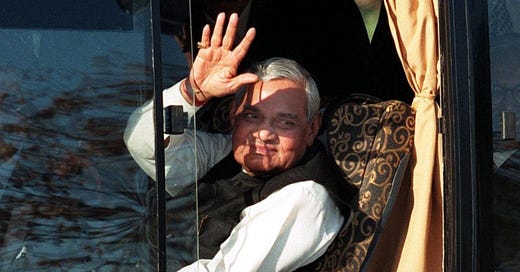



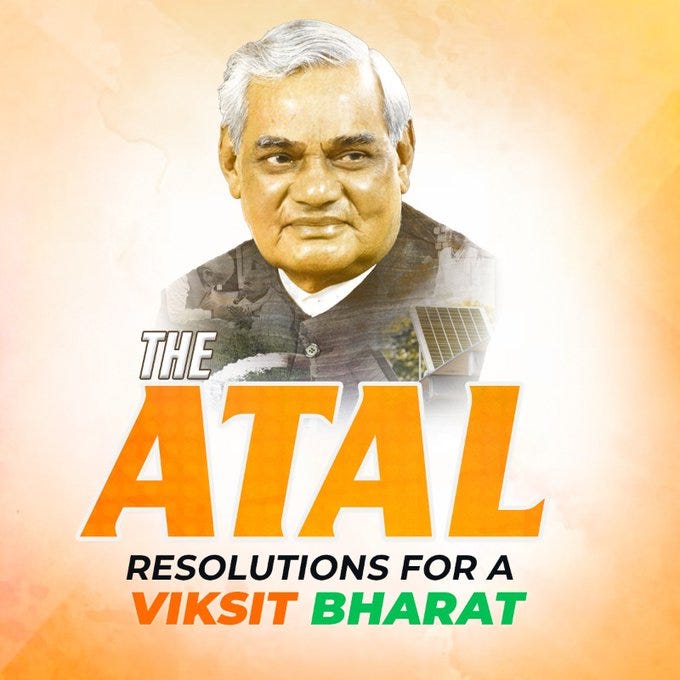
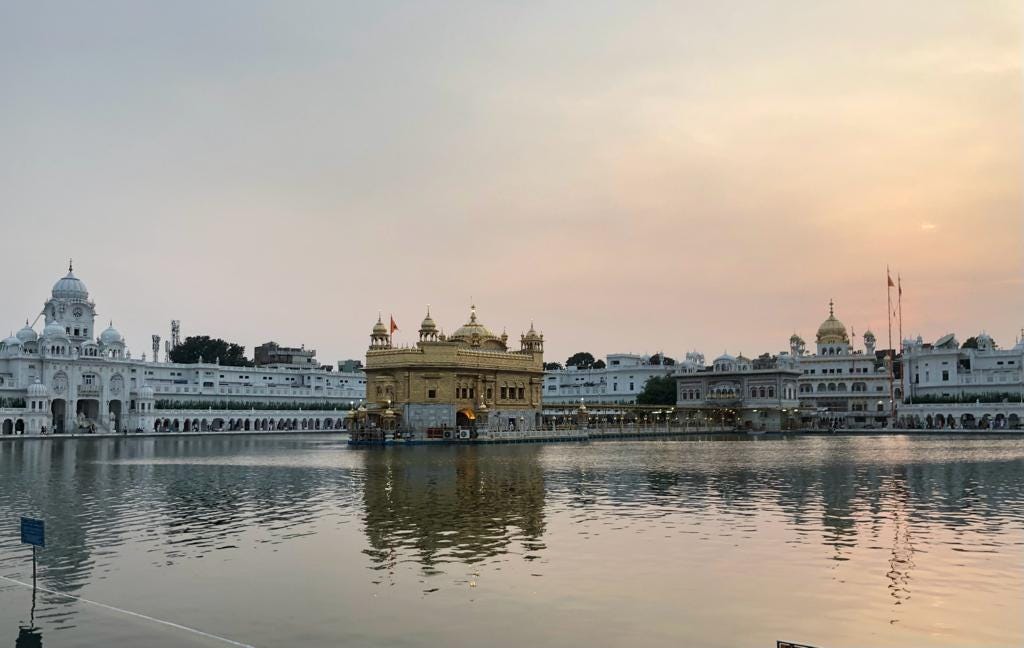
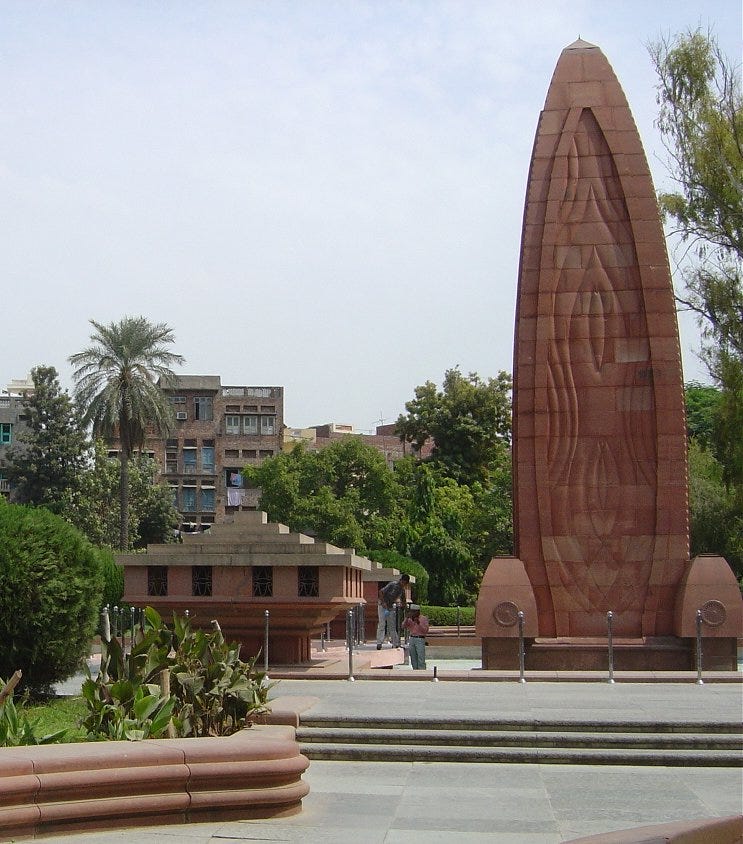
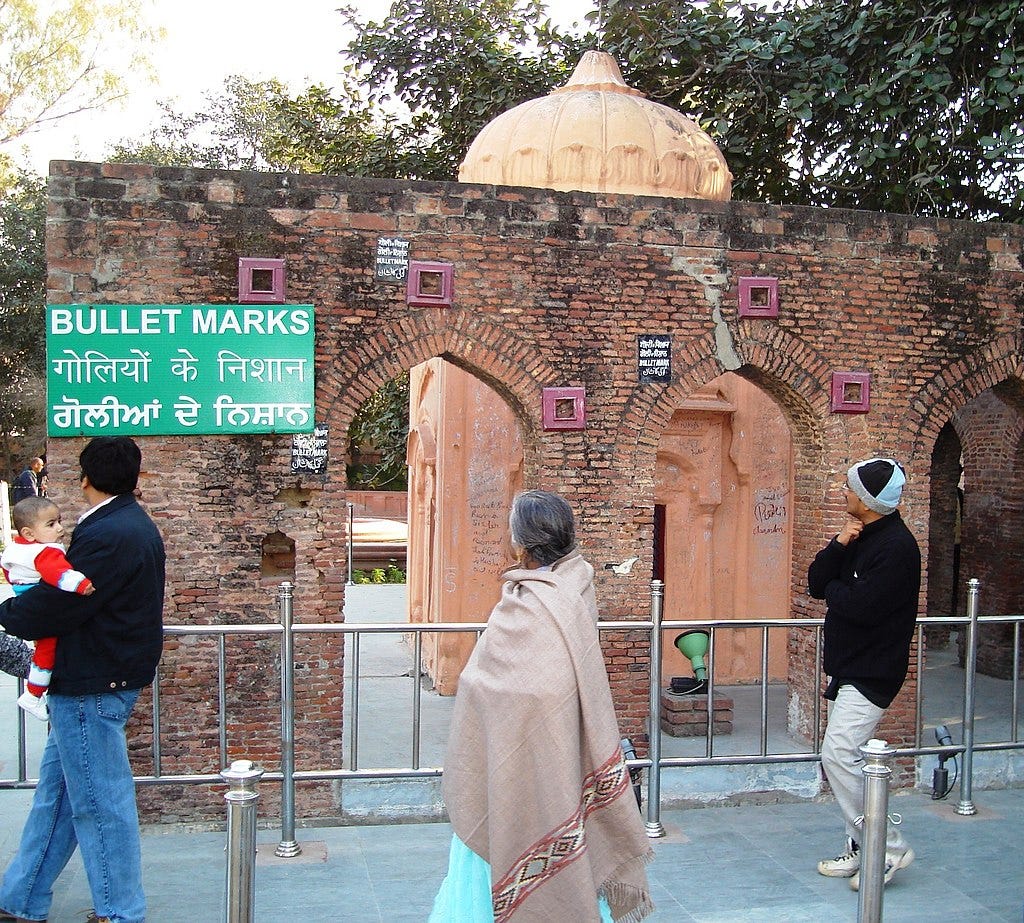
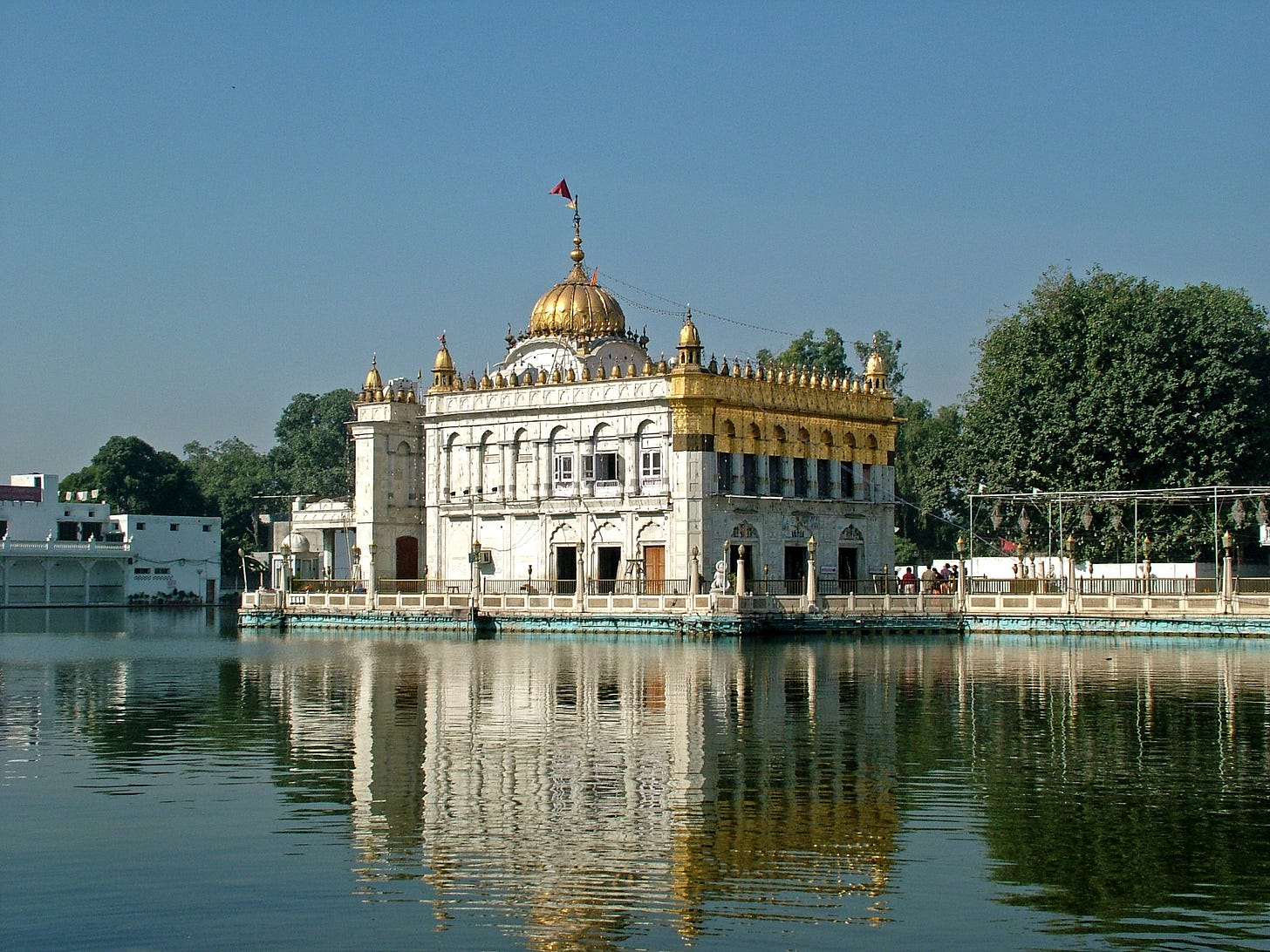
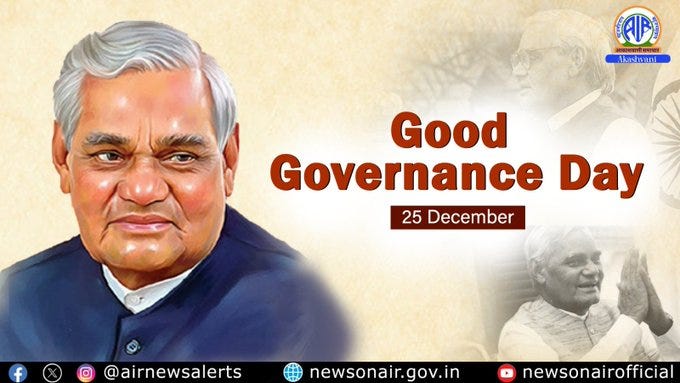
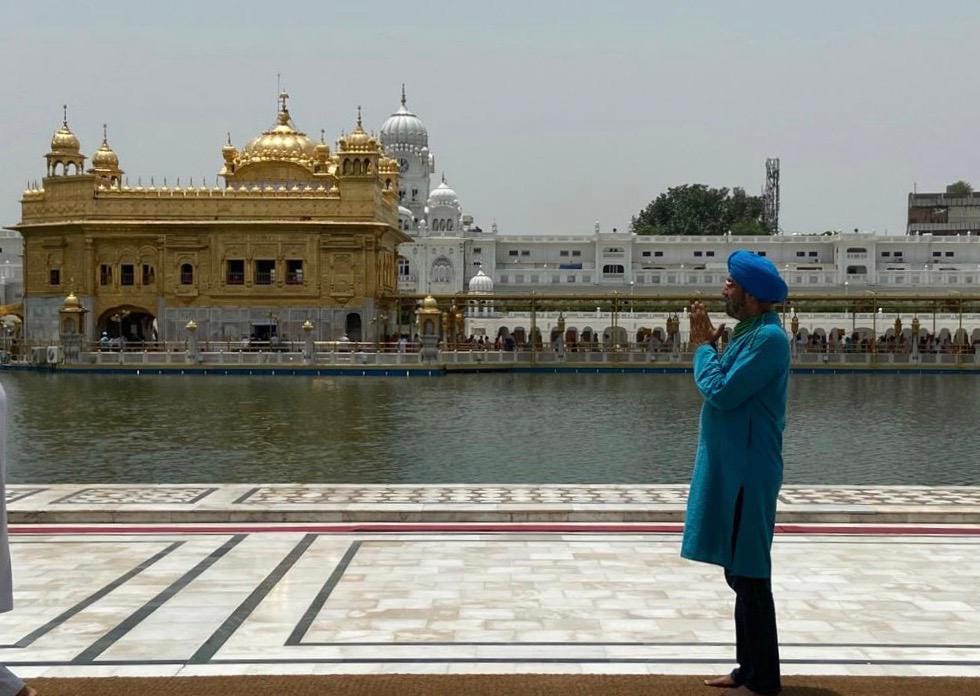
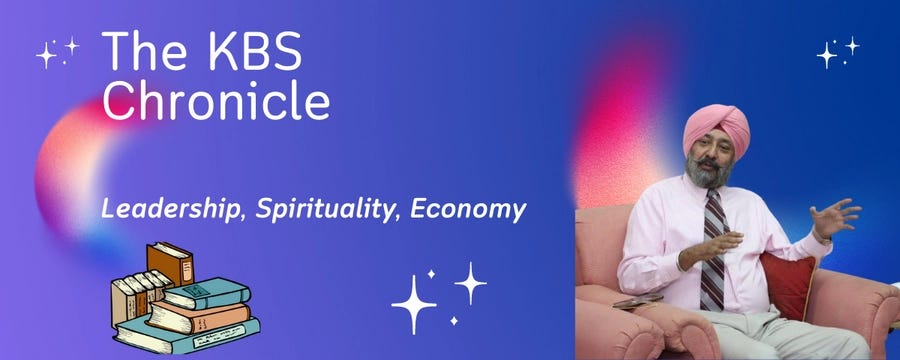
Very well expressed. I had the opportunity to receive him at Nathdwara temple in 1997 before he ascended to the PMO. He had a great appeal in his body language and gestures.
Yet as PM, he failed the Nation in 2002, when he was supposed to act. And; he was taken for ride when he was made to believe ‘India Shining’ by people around him and was made to sit in opposition after preponed elections.
This however does not mean he was not a great statesman. He was an honest politician, meaning to serve the Nation, and above all a great humanist believing in equality, fraternity, liberty and freedom.
An interesting and informative narration of the author’s emotional and affectionate reminiscences of a truly wonderful statesman and a popular leader of his own mettle.